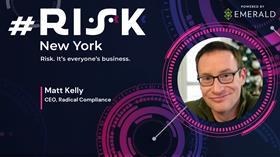Artificial Intelligence is no longer a futuristic concept; it’s a present-day reality rapidly weaving its way into the very fabric of every business process. From automating routine tasks and enhancing customer experiences to driving complex decision-making and unlocking new revenue streams, AI promises a new era of efficiency and innovation.
Recent industry reports indicate a dramatic acceleration, with a significant percentage of organizations, across all sectors, actively integrating AI into their operations, driven by a desire to maintain a competitive edge. However, this AI-driven transformation, while offering immense potential, also introduces a new and complex spectrum of risks that challenge traditional Governance, Risk, and Compliance (GRC) frameworks.
As organizations race to deploy AI solutions, security, risk, and compliance teams find themselves at a critical juncture. They are tasked with guiding this AI adoption in fruitful, ethical, and secure directions, yet the very nature of AI – its speed, scale, complexity, and often opaque decision-making processes – stretches existing GRC paradigms to their limits. The question is no longer if AI will impact your business, but how your organization will govern its adoption to maximize benefits while mitigating potentially significant downsides.
This critical challenge will be a key focus at the upcoming #RISK New York conference (July 9-10, 2025), particularly in a session led by a leading voice in the compliance world:
Session Spotlight: AI Governance for Modern Risks (Day 2, July 10th, 11:45 AM - 12:15 PM EST)
Speaker: Matt Kelly, CEO, Radical Compliance

The AI Adoption Wave: Balancing Ambition with Prudence
The drive for AI adoption is fueled by a clear understanding of its potential rewards. Businesses anticipate enhanced productivity, improved data analysis leading to better insights, hyper-personalization of services, and the creation of entirely new business models. This ambition is often reflected in varying organizational risk appetites – some companies are early, aggressive adopters, willing to embrace higher initial risks for a first-mover advantage, while others take a more measured, cautious approach, prioritizing safety and proven use cases.
Regardless of the pace, successful AI integration hinges on the ability to monitor this adoption continuously. Organizations must have mechanisms to ensure that AI deployment aligns with their stated risk appetite, ethical principles, and long-term strategic goals. Without robust governance, the rush to implement AI can inadvertently introduce significant vulnerabilities related to data security, algorithmic bias, operational instability, and regulatory non-compliance, ultimately undermining the very growth and success it was intended to foster.
How AI Challenges Traditional GRC
AI presents several unique challenges to established GRC concepts:
- The Evolving Regulatory Landscape: Governments worldwide are grappling with how to regulate AI. While the EU AI Act provides a comprehensive framework, the US landscape is a mix of existing regulations being applied to new technologies and emerging sector-specific guidance. Understanding what constitutes “new” AI regulation versus the application of existing data privacy, anti-discrimination, or consumer protection laws to AI is crucial.
- Data Security & Privacy Amplified: AI models are often trained on vast datasets, many of which contain sensitive or personal information. This amplifies data breach risks and necessitates stringent data governance and privacy-preserving techniques throughout the AI lifecycle.
- Algorithmic Bias and Ethical Dilemmas: AI systems can inherit and even amplify biases present in their training data, leading to discriminatory outcomes in areas like hiring, lending, or customer service. This poses significant ethical and reputational risks.
- Transparency and Explainability (The “Black Box” Problem): The decision-making processes of complex AI models can be opaque, making it difficult to understand why a particular decision was made. This lack of explainability hinders accountability and makes it challenging to identify and rectify errors or biases.
- Corporate Accountability & Shifting Responsibilities: As AI systems take on more autonomous decision-making, clear lines of responsibility and accountability must be established. Traditional roles may need to evolve, and new roles focused on AI ethics, governance, and risk management are emerging.
Building the Future: Principles for Safe and Effective AI Governance
To navigate these challenges and ensure AI adoption is both fruitful and responsible, organizations need to establish new principles and robust governance frameworks. This involves moving beyond a purely technical or compliance-focused approach to a holistic, cross-functional strategy.
- Cross-Functional Collaboration is Paramount: AI governance cannot exist in a silo. It requires active collaboration between IT, cybersecurity, data science, legal, compliance, risk management, ethics teams, and business unit leaders. Each function brings a critical perspective to identifying, assessing, and mitigating AI-related risks. Breaking down these organizational silos is fundamental.
- Education from the Board Down: Educating teams at all levels, and critically, the board of directors, about the unique risks and opportunities of AI is fundamental. The board needs to understand the organization’s AI strategy, its risk appetite concerning AI, and the governance structures in place to ensure responsible deployment.
- Risk-Based Approach: Not all AI systems carry the same level of risk. A risk-based approach, similar to that outlined in the EU AI Act, allows organizations to focus their governance efforts on high-risk applications.
- Integrating AI into ERM: AI-specific risks must be integrated into the broader Enterprise Risk Management (ERM) framework, rather than being treated as a separate, isolated concern.
- Human Oversight: Despite the push for automation, human oversight remains critical, especially for high-impact AI decisions. Clear protocols for human intervention and review must be established.

Matt Kelly at #RISK New York: Unpacking AI Governance
In his session at #RISK New York, Matt Kelly, CEO of the influential Radical Compliance, will delve into these critical issues. He will explore how AI is challenging traditional concepts of GRC and outline the new principles organizations need to keep in mind as they build AI governance for the future. Attendees can expect to gain valuable insights on:
- The emerging US and global regulatory landscape for AI – distinguishing new regulations from the application of existing laws.
- The evolving roles and responsibilities crucial for effective AI governance.
- Key questions every enterprise must answer to ensure AI adoption aligns with its risk appetite and compliance obligations.
Steering AI Towards a Secure and Successful Future
The integration of AI into the fabric of modern business is inevitable and offers transformative potential. However, this journey must be guided by robust governance, a clear understanding of the associated risks, and a commitment to ethical and responsible deployment. By fostering cross-functional collaboration, educating all stakeholders, and adopting a proactive approach to AI risk management, organizations can navigate the complexities of this new era and ensure that AI adoption leads to sustainable growth and success.
Don’t miss Matt Kelly’s session and many others designed to equip you for the future of risk.
Register for #RISK New York today!


















No comments yet